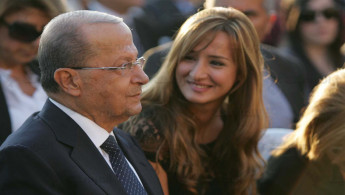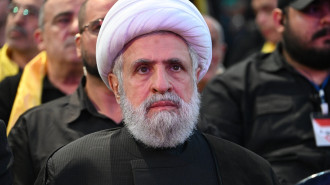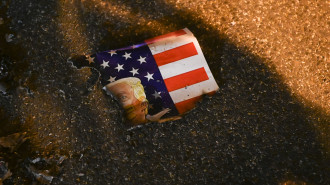Vatican pushes to resolve impasse over Lebanese presidency
The Vatican has reportedly stepped in to resolve the deadlock in discussions between political factions over who will occupy the Lebanese presidency, vacant since the end of former president Michel Suleiman's term ended in May 2014.
Christian sources have told al-Araby al-Jadeed that the Papal Embassy in Lebanon is now leading efforts to encourage further dialogue on who should be the next president of Lebanon.
Talks are taking place between the predominantly Shia Hizballah and the Sunni Future Movement, and the Christian Lebanese Forces and Free Patriotic Movement.
Under the Lebanese confessional system, the position must be occupied by a Maronite Christian. Sunni prime minister Tammam Salam is acting president until the impasse is resolved.
| Until the political impasse is resolved, Sunni Prime Minister Tammam Salam is acting president. |
Sources say Vatican ambassador Gabriele Caccia has held a series of meetings with Christian and Muslim officials in Lebanon to push things forward. According to multiple sources Caccia has contacted the Future Movement, trying to reduce the number of presidential nominees and agree on a "consensus" candidate.
The Future Movement originally consented to Free Patriotic Movement MP Michel Aoun's candidacy, an ally of Hizballah, but only if a number of conditions were met. However, the Future Movement's conditions proved almost impossible to meet.
They were intended to embarrass Aoun by forcing him to abandon Hizballah and concede a number of top security and civil posts in the government to the March 14 alliance, of which the Future Movement is a major component. They also called for a number of foreign policy commitments, including support for Saudi Arabia and condemnation of the Syrian regime.
However, insiders close to the leader of the Future Movement, Saad Hariri, say Operation Decisive Storm in Yemen has effectively destroyed Aoun's presidential ambitions.
During the Arab summit in Sharm al-Sheikh at the end of March 2015, Aoun was criticised for failing to take a clear position over Yemen. Lebanese Foreign Minister Gebran Bassil, Aoun's son-in-law, upset UAE Foreign Minister Abdullah bin Zayed, who later met with Salam to clarify the issue. Bassil later held a press conference to clarify Lebanon’s foreign policy positions, including on Yemen.
| The Papal ambassador criticised Christian parties, blaming them for the deterioration in the situation of Christians in the country. |
Those who met Caccia said he "sharply criticised Christian parties, directly blaming them for Christians' deteriorating situation and authority in the country." Caccia reportedly told visitors that internal Christian dialogue should continue, and include all Christian forces. This would hopefully lead to an agreement to end the presidential crisis.
A compromise candidate?
Sources say the Vatican is now almost fully convinced the next president of Lebanon will be from neither the pro-Hizballah pro-Syrian regime March 8 camp nor from the pro-Saudi March 14 camp. Instead, they say, “what is required is someone to fill the Christian post even in form, provided that preparations would then begin for the election of a president who would be strong and able to strengthen and restore the Christian role in Lebanon.”
The Vatican’s position does not impress Christian leaders Michel Aoun of the Free Patriotic Movement or the Lebanese Forces' Samir Geagea, who want a strong Christian president. While Geagea had previously said more than once he was willing to withdraw his nomination for the sake of a consensus candidate, Aoun remains determined to go ahead with his candidature and thus he stands to lose the most from a Vatican-mediated compromise.
This article is an edited translation from our Arabic edition.





 Follow the Middle East's top stories in English at The New Arab on Google News
Follow the Middle East's top stories in English at The New Arab on Google News


